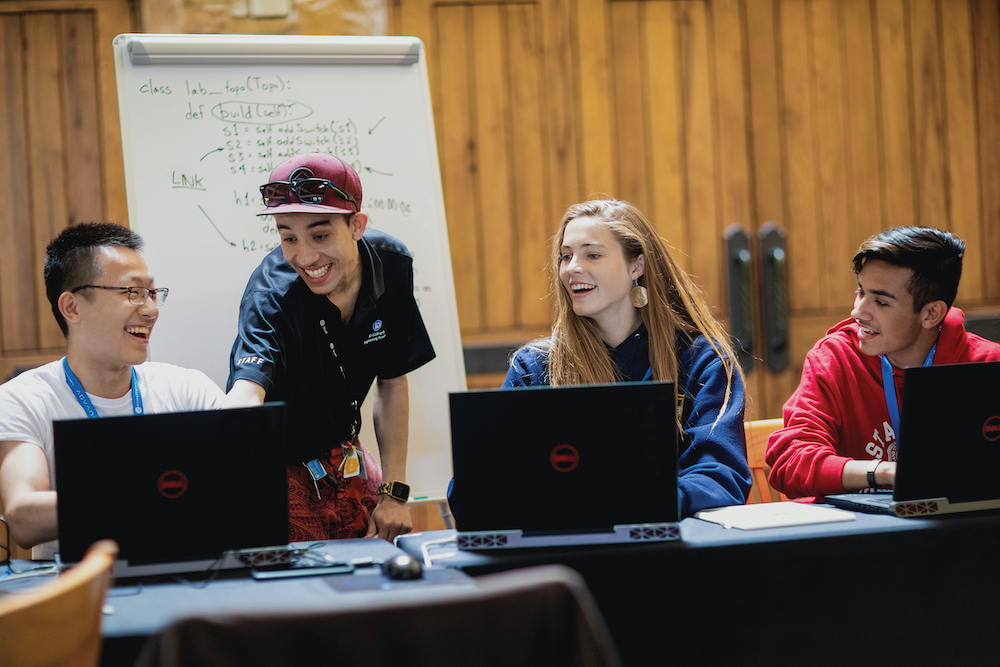Extracurricular Activities: A Platform for Youth Leadership

Introduction
Extracurricular activities play a crucial role in the holistic development of students, offering them opportunities beyond the classroom to explore their interests, develop skills, and cultivate leadership qualities. As an editor of an English education website, it is important to highlight the significance of extracurricular activities in fostering youth leadership. This article aims to discuss the role of extracurricular activities in promoting leadership skills among students, explore the integration of technology, provide real-life examples, and include quotes from renowned figures, all while using authentic American English.
I. The Importance of Extracurricular Activities in Youth Development
Extracurricular activities provide a platform for students to explore their passions, develop new skills, and enhance their personal growth. Here, we delve into the significance of extracurricular activities in fostering youth leadership:
- Building Confidence and Self-Esteem Engaging in extracurricular activities allows students to step out of their comfort zones, take on leadership roles, and build confidence in their abilities. By achieving goals, overcoming challenges, and receiving recognition for their efforts, students develop a sense of self-worth and belief in their potential as leaders.
- Enhancing Communication and Interpersonal Skills Participating in extracurricular activities involves collaboration, communication, and teamwork. Through interactions with peers, mentors, and advisors, students learn to effectively express their ideas, listen actively, and work cohesively towards common goals. These skills are essential for effective leadership.
- Promoting Time Management and Organization Balancing academics and extracurricular commitments teaches students valuable skills in time management, prioritization, and organization. Effective leaders must be able to manage their time efficiently and meet deadlines while juggling multiple responsibilities.
II. Technology Integration in Extracurricular Activities
- Virtual Clubs and Organizations In the digital era, technology has enabled the creation of virtual clubs and organizations. Students can join online communities based on their interests, connect with like-minded individuals, and collaborate on projects regardless of geographical boundaries.
- Online Platforms for Skill Development Technology offers online platforms and resources that provide opportunities for students to develop specific skills related to their interests. For example, coding websites, language learning apps, and virtual art studios allow students to explore and enhance their abilities.
III. Real-Life Examples of Youth Leadership through Extracurricular Activities
- National Student Leadership Conference The National Student Leadership Conference provides high-achieving students with immersive experiences in various fields, such as business, medicine, and engineering. Through interactive workshops, simulations, and networking opportunities, students develop leadership skills and gain insights into their chosen fields.
- Youth Government Programs Youth government programs, such as Youth in Government and Model United Nations, offer students the opportunity to simulate political processes, debate, and propose solutions to real-world issues. These programs foster leadership, critical thinking, and civic engagement.
IV. Quotes on Youth Leadership and Extracurricular Activities
- Former First Lady Michelle Obama once said, “Don’t be afraid. Be focused. Be determined. Be hopeful. Be empowered.”
- According to leadership expert John C. Maxwell, “Leadership is not about titles, positions, or flowcharts. It is about one life influencing another.”
Conclusion
Extracurricular activities serve as a powerful platform for youth leadership development, offering students the opportunity to grow, explore their passions, and develop essential skills. By actively participating in extracurricular activities, students can build confidence, enhance communication skills, and learn valuable time management techniques. As technology continues to evolve, it provides new avenues for students to engage in extracurricular pursuits and develop their leadership potential. Encouraging and supporting students’ involvement in extracurricular activities is vital in nurturing the leaders of tomorrow and preparing them for success in all aspects of their lives.


